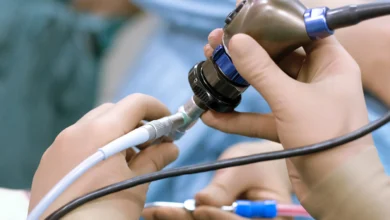10 Signs You Need a Massage: How to Recognize When Your Body Needs It

Modern life is full of stressors, from long hours at a desk to the pressures of daily life. Over time, physical and mental stress can take a toll on the body, manifesting as muscle tension, headaches, and even poor sleep. If these issues are left unaddressed, they can accumulate and lead to more serious health concerns. Recognizing the signs that you need a massage can aid you in maintaining your well-being and prevent long-term issues. For those experiencing these signs, massage therapy in Edmonton offers an effective way to relieve stress, ease muscle tension, and restore overall balance.
Ten Common Signs That Indicate It Might Be Time To Schedule A Massage
Everyday life can be physically and mentally demanding, and over time, stress and tension build up in the body. When these pressures start impacting daily well-being, it might be time to consider massage therapy. Here are ten common signs that your body may be in need of a massage.
1. Persistent Muscle Tension
Muscle tension often develops as a natural response to stress, repetitive movements, or poor posture. The neck, shoulders, and back are typically the areas most affected, leading to constant discomfort. If muscle tightness is becoming a regular issue, it may be a clear signal that the body could benefit from the deep relaxation and pressure relief that massage offers.
2. Frequent Headaches
Chronic headaches often result from tension in the neck and shoulders, usually due to stress or prolonged screen time. Massage therapy focuses on releasing tension in these areas, which can significantly reduce the frequency and intensity of headaches. A targeted relaxation massage can be particularly effective in alleviating headache pain and preventing future episodes.
3. Reduced Range of Motion
Difficulty moving certain muscles or joints is often a sign of a restricted range of motion caused by tight muscles or fascia. Regular massage can help improve flexibility by loosening up stiff muscles, promoting blood flow, and supporting natural movement. Increased mobility can enhance daily comfort and prevent injuries over time.
4. Poor Sleep Quality
Poor sleep is a widespread issue linked to both physical and mental stress. Symptoms such as insomnia, frequent waking, and restlessness may indicate a need for a massage. Massage therapy promotes relaxation, helping to reduce stress and prepare the body for restful sleep. By easing tense muscles and calming the nervous system, massage makes it easier to unwind and achieve quality sleep.
5. High Stress Levels
Persistent stress affects every part of the body. If stress feels overwhelming, a relaxation massage can help decrease cortisol levels, lower blood pressure, and induce a state of calm. Regular massage therapy also supports emotional well-being by creating a healthier connection between mind and body, helping individuals better manage stress.
Read also How Pelvic Floor Physiotherapists Address Chronic Pelvic Floor Tension
6. Chronic Pain
Chronic pain, such as persistent lower back pain or neck pain, can often be relieved with targeted massage therapy. By addressing muscle tension and improving circulation, massage provides significant relief for those dealing with ongoing discomfort. Specialized treatments are available to help manage chronic pain and improve the quality of life for those affected.
7. Increased Feelings of Anxiety
Anxiety and stress often go hand in hand, impacting both mind and body. Anxiety can present through physical symptoms like muscle tightness, rapid heartbeat, and even digestive issues. Massage therapy provides stress relief by stimulating the body’s relaxation response, which helps alleviate anxiety symptoms and supports mental clarity.
8. Post-Workout Soreness
For those engaging in regular workouts, muscle soreness and stiffness are common, especially after increasing the intensity or duration of physical activity. Massage therapy aids in muscle recovery by promoting circulation, flushing out lactic acid, and supporting faster muscle repair. Athletes and fitness enthusiasts often include massage in their routines to reduce soreness and maintain flexibility.
9. Frequent Fatigue
Constant fatigue is often a sign that the body is under strain, either from physical demands or mental stress. Massage therapy helps to rejuvenate energy levels by enhancing blood flow and promoting relaxation, giving the body a chance to recharge and regain vitality.
10. Difficulty Concentrating
Difficulty focusing, mental fog, and decreased productivity can sometimes signal that the mind and body are overstressed. Regular massage therapy promotes mental clarity and improves concentration by reducing physical tension and encouraging relaxation, helping individuals feel more alert and focused.
If any of these signs sound familiar, it may be time to consider scheduling a massage. Regular sessions can serve as preventive care, helping to minimize the buildup of stress and tension that can impact health over time. Massage therapy in Edmonton offers various options tailored to individual needs, from deep tissue massages for muscle tension to relaxation massages designed for stress relief.
Listen to Your Body and Prioritize Self-Care
In today’s fast-paced world, it’s easy to overlook the body’s signals for rest and recovery. Recognizing the signs that indicate a need for massage is effective for maintaining physical and mental balance. Massage therapy in Edmonton provides a holistic approach to well-being and tackles both the physical and emotional aspects of stress and tension.
For those in need of professional care, Granville Physiotherapy in Edmonton offers a range of massage services that cater to various needs, including stress relief, muscle recovery, and relaxation. By listening to the body and seeking support when needed, individuals can enjoy a healthier, more balanced lifestyle.





